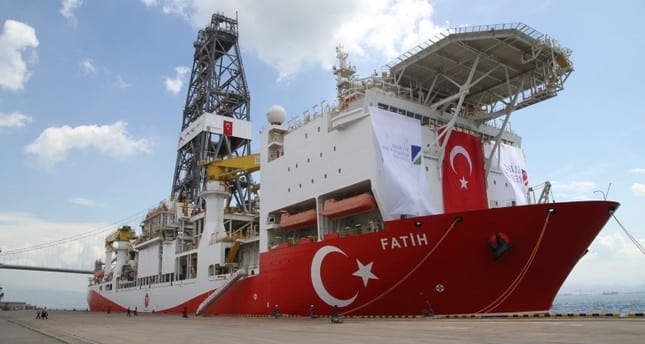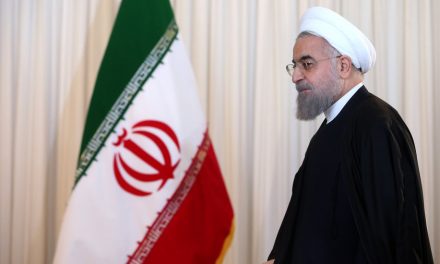By daily Sabah
Ankara said Monday that the United States’ statement urging Turkey to reconsider its decision to start offshore drilling operations in Cyprus is “disconnected from the facts.”
In a statement, the Ministry of Foreign Affairs said the U.S. statement that Turkey was intending to drill on an area “claimed” by Greek Cyprus falsely implied the Greek Cypriots had secured a legal right to the area, disregarding international law.
Morgan Ortagus, spokesperson for the U.S. Department State said in a statement on Sunday that “The United States is deeply concerned by Turkey’s announced intentions to begin offshore drilling operations in an area claimed by the Republic of Cyprus as its Exclusive Economic Zone.”
Ortagus called the move “provocative” and said it risked raising tensions in the region.
“We urge Turkish authorities to halt these operations and encourage all parties to act with restraint,” it said.
Turkey has long made public its actions in the Eastern Mediterranean to the intentional community and United Nations, the Foreign Ministry responded on Monday.
The ministry underlined that a fair agreement under international law for use of continental shelf surrounding the island of Cyprus by all relevant parties had not yet been reached.
Until such an agreement is finalized, attempts of third parties to usurp the role of international courts in determining maritime boundaries is “unacceptable,” it added.
Turkish drilling and seismic vessels will continue to explore permitted areas of Turkey’s continental shelf under licenses given to Turkish Petroleum (TP) by the Turkish government in 2009 and 2012, the ministry stated.
As long as the Greek Cypriots exclude Turkish Cypriots from the decisionmaking processes regarding hydrocarbon resources, the Turkish Cypriots will continue to protect their own rights, the statement concluded.
Turkey’s first drillship Fatih started drilling its second well in the Eastern Mediterranean on Friday and will continue operations until Sept. 3. The drillship was dispatched Friday morning from the southern port of Antalya with three support vessels and a frigate toward its exclusive economic zone west of the island of Cyprus.
The Foreign Ministry said Saturday that Turkey always maintains its commitment to international law during explorations in the region, in response to a statement by the European Union foreign policy chief on Turkey’s intended hydrocarbon drilling activities in the Eastern Mediterranean.
In a written statement released Saturday, the Foreign Ministry rejected High Representative of the EU for Foreign Affairs and Security Policy Federica Mogherini’s remarks urging Turkey to reconsider plans to start exploratory drilling for oil and gas off the island of Cyprus, noting that Turkey will carry out the drilling in line with its legal rights stemming from international law.
Furthermore, the Foreign Ministry noted that the Greek Cypriot administration has been irresponsibly risking security and stability in the Eastern Mediterranean by disregarding the rights of Turkish Cypriots and rejecting cooperation despite Turkey’s warnings.
The ministry also said the EU, which has failed to take concrete steps to resolve the issue, has no right to say anything to Turkey. Turkey has consistently objected to the Greek Cypriot administration’s unilateral drilling activity in the Eastern Mediterranean, during which it commissioned American, French and Italian energy companies like Exxon, Total and ENI.
The island has been divided since 1974 when a Greek Cypriot coup was followed by violence against the island’s Turks, and Ankara’s intervention as a guarantor power.
Negotiations over Cyprus resumed after a 2004 U.N.-backed Annan Plan to reunify the Turkish Cypriot and Greek Cypriot communities. The status of the island remains unresolved in spite of a series of discussions that resumed in May 2015. There has been an on-and-off peace process over recent years, with the latest failed initiative taking place in Crans-Montana, Switzerland, under the auspices of guarantor countries Turkey, Greece and the U.K. collapsing last year.



















